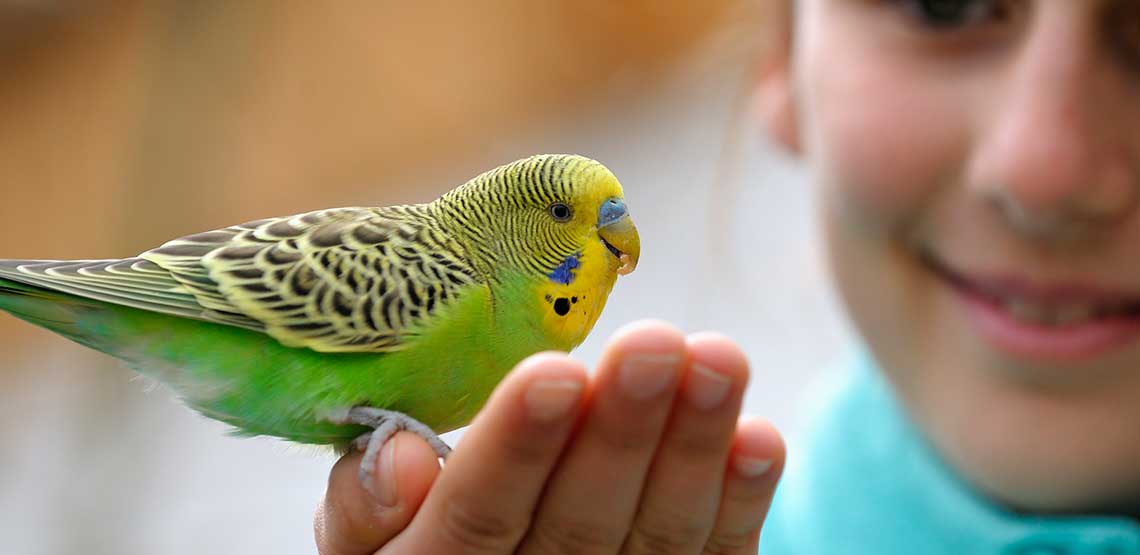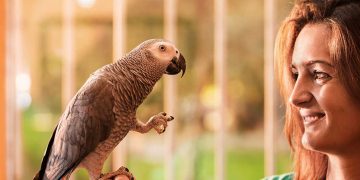Proper Bird Care
To provide complete pet bird care, you'll need to understand your pet's dietary requirements, hygiene and medical needs, and how to maintain a clean, healthy and safe living environment. A physical examination, performed by a licensed veterinarian, is also an important part of baby bird care; many bird diseases are asymptomatic until they reach an advanced stage, and you'll want to be sure your pet has a clean bill of health before you take it home. Most bird breeders and pet stores will let you return a bird if a vet discovers any previously undetected illnesses.
General Bird Care Tips
Healthy birds have plenty of energy, bright eyes, a robust appetite and clean, smooth feathers. If you notice sudden physical or behavioral changes, you should take your bird to the vet, especially if the changes occurred after incidental contact with other animals or as the result of eating new or unknown foods. You should also keep in mind that certain people foods are highly toxic to birds, including chocolate, avocado, apple seeds, onions, salt, coffee and coffee grounds, tomato leaves, dried beans and mushrooms. Keep these items safely stored away if you're going to let your bird out of its cage.
Broadly speaking, bird seed should comprise no more than 50 percent of your pet's diet, with the other half consisting of fresh fruits and vegetables with some crushed-up eggshells or chicken pieces for protein. Talk to your vet about your pet's vitamin and mineral requirements, and ask your pet's doctor to recommend a bird seed brand that will meet them.
You May Also Like:
Related Search Topics (Ads):
Most birds take care of their own grooming needs, but you may have to bring your pet to the vet every now and then have its beak and claws trimmed. This is particularly necessary with larger pet bird breeds, such as parrots. Its cage should be clean and offer plenty of space, but make sure the bars are spaced in such a way that the bird won't be able to wriggle its way through and make a dash for your window.
Breed-Specific Bird Care Information
In addition to observing good general bird care, you should familiarize yourself with the specific needs of the species of bird you own. While your bird breeder or vet is the best source of complete information, here is an overview of the specialized bird care needs of some popular breeds:
Parakeets: Beyond the given general guidelines, good parakeet bird care consists primarily of close attention to some specialized grooming needs. Parakeets need two to three showers per week to keep their feathers clean and healthy. This breed is also known for being flighty, so you may want to give some thought to clipping its wings to prevent it from sneaking out of your home and disappearing into the wild.
Lovebirds: One key thing to keep in mind regarding lovebird care is that, despite its name, this species can be extremely hostile and aggressive towards other birds. While they are very affectionate for their owners and mates, they do not take kindly to other birds and should only share cages with their partners.
Canary: Specially formulated canary seed is available through pet food retailers, which offers excellent dietary balance for these beautiful birds. Otherwise, these small, pleasant, timid songbirds require little in the way of special attention.
Finches: As part of finch bird care, remember that this species needs to be able to fly around from perch to perch. It is important for their good health that they are able to move freely, so you should make sure to purchase a birdhouse that offers ample room and avoid cluttering up the cage.

